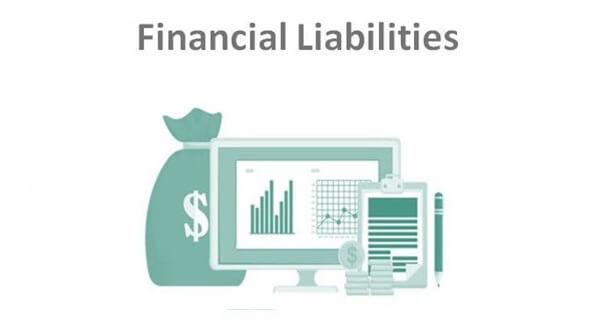
Before jumping onto unwind, how long do you have to transfer property after death? There is another thing named as Probate which is a requisite!
Table of Contents
Ever Heard What is Probate?
Probate is required when a home’s owner passes away. After someone dies, their assets are dispersed, accounts are closed, and debts are settled through the probate procedure. Typically, real estate assets are sold to settle debts or given to a beneficiary.
Introduction of a Probate Proceeding
The procedure that a judge oversees to validate a decedent’s will is known as the probate process. It locates the assets of the departed, settles their outstanding obligations, and allots the estate’s assets to the appropriate heirs. The probate process varies from state to state, but it is often quite uniform. Whether you are a beneficiary, an executor, or someone making a will, it is crucial to understand what is involved. Let’s now begin our study. How long do you have to transfer property after death?
After death, there is no legal deadline for transferring real estate. Either rapidly or gradually could occur. There have been instances where real estate is passed down through the generations. It is best to close the deal quickly because issues may arise in the interim. The date of death and the executor’s official appointment as the property’s manager are not the same. Thus, “fast” isn’t really that quick.
In Canada, How Long Do You Have to Transfer Property After Death?
After death, how long does it take to transfer a property? In Canada, there is no hard deadline for probate, unlike some other jurisdictions, and the time frame for transferring property after death is dependent on a number of variables. Nonetheless, the general steps it takes to transfer a property after death are outlined below:
Probate Procedures
Should the estate of the departed individual require probate, the procedure may require several months to many years. The legal procedure known as probate is how the court certifies a will, if any, and manages the division of property.
Independent Estate Administration
Canada permits independent estate administration, which can expedite the probate procedure. Independent administration allows the executor to act without a judge’s approval, which may speed up the transfer of property.
Non-Probate Transfers
Some assets, such those held in joint tenancy or with beneficiary designations, might go to the designated parties quite rapidly without going through the probate process.
While there isn’t a set period of time in Canada for property transfers after death, it is important to remember that it is recommended to start the probate process or other relevant legal procedures as soon as possible. Seeking advice from a lawyer with experience in probate and estate law is advised if you’re handling a property transfer after someone has passed away.
Required Documents for Application for Property Transfers After Death
- Evidence of Death
- A final testament and will
- Any changes or additional details pertaining to the will Court Forms
A real estate lawyer can create the required survivorship application paperwork if the property transfer takes place through survivorship. By signing these papers, the surviving owner will become the only owner of the property and the name of the deceased will be removed.Property transfers can start as soon as legal power is obtained through joint tenants with survivorship or probate.
Notify Appropriate Parties and Determine Financial Liabilities

Notify the government, financial institutions, co-owners of the property, and any other pertinent parties of the death. By taking this step, you can be confident that accounts are transferred or frozen correctly when needed. In this phase, you can also identify and take care of any unpaid debts, like mortgages and property taxes, that are associated with the property. In order to facilitate the transfer of property, several responsibilities must be satisfied.
Title Transfer via the Land Titles Office
The executor or surviving co-owner will have to start the title transfer process with the Land Titles Office, whether or not they file petitions for survivorship. This entails filling out the necessary paperwork and paying any related costs.
Complete the Transfer of Property
Update the property title to reflect the new ownership status as soon as the transfer of property is finalized and all legal criteria have been satisfied. This guarantees that the specified beneficiaries or surviving co-owner(s) now hold the property in an official capacity.
How Long Do You Have to Keep Estate Records After Death in Canada?
Generally, you have six years from the end of the last tax year to maintain all necessary records and supporting documentation. One of the records that is essential for determining the estate’s value and demonstrating the payment of all income taxes and estate taxes is the tax return. In Canada, after a taxpayer passes away, the Canada Revenue Agency requires an executor to hold onto copies of their returns for a period of six years. If the CRA finds any discrepancies during that period, they may examine the deceased’s tax returns.
Which Records to Keep Estate Records After Death in Canada?
After someone passes away, you have to keep estate records after death, in Canada as well as you should save certain financial and legal records related to probate for a number of years in addition to tax returns and receipts.
Debts Forgiven After Death in Canada
What debts are forgiven at death in Canada? Do you know? Death and taxes, as they say, are the two certainties in life. But does that imply that your debts will follow you into eternity, or may they leave your loved ones in debt?
No, when you pass away, your beneficiaries won’t receive your Canadian debts. Your estate will use your assets to settle any outstanding debts owed to your creditors. Your beneficiaries will get any residual assets as part of their inheritance.
There isn’t actually a debt list that can be consulted. Essentially, you are solely responsible for any bills that are owed in your name. This implies that you would be accountable for repaying credit cards, mortgages, school loans, and credit lines.
ALSO, If you don’t have enough assets to cover your debts they are forgiven after death. A creditor will almost always want to see proof before they would give up trying to recover money that is owed from your estate. The creditor may give up trying to collect if they realize there aren’t enough assets to cover the loan.
Related Articles

My name is Adnan Khan and I am a realtor specializing in Pre-construction condos and homes sales.
I also do assignments of condos. You can contact me at 416-897-4714
Designation: P.Eng
Education: McMaster University, Engineering Technology
Specialty: Residential Real Estate
Experience: 15+
Area Covered: Downtown Toronto and Neighboring Area
Languages Spoken: English, Urdu





Leave a Reply